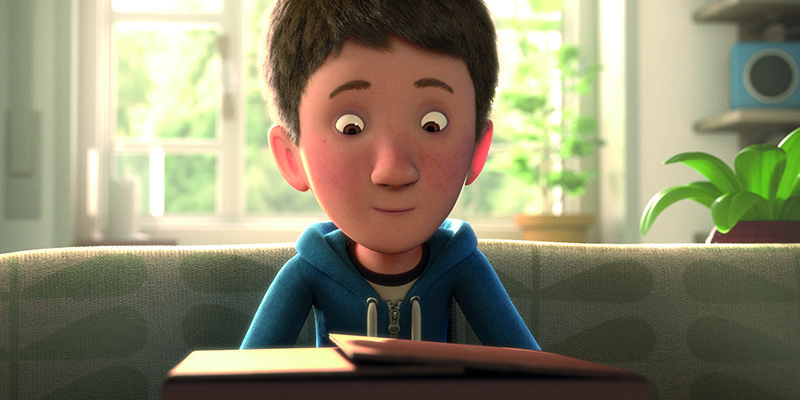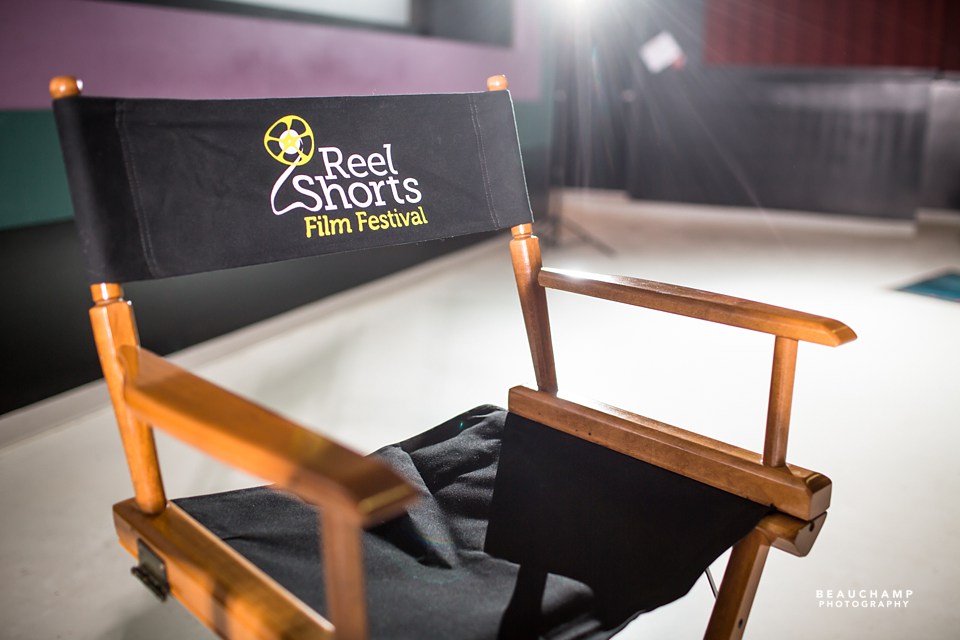How do we evaluate films?
“How do we find films?” is Part I of our Programming Process series of blogs and can be read here. Scroll down to watch some films that illustrate the 4 criteria that we use to evaluate films:
- is it a good story
- is it beautifully crafted
- is it memorable
- does it offer insight into an unfamiliar world or a fresh perspective on a familiar one
In August 2014, as we were preparing to open for submissions for our 2015 fest, we developed a fairly simple method to keep these criteria in mind when evaluating films. A film will have met these four criteria if the viewer can answer yes to the following 14 questions, or yes to almost all of them because there are exceptions as you’ll see below:
- Exposition – the information the audience needs to know about characters and setting was skillfully conveyed. This is one of the most common problems with short films, particularly since there isn’t a lot of time to do it. Yet, there’s no reason that problems with exposition can’t be identified and fixed at the script stage, although important information can sometimes get dropped at the editing stage. The most frequent example of poorly conveyed exposition occurs when two characters talk about their past or about another character for no reason other than to convey information to the audience. Phone conversations often fall into this category. Conversely, if there’s not enough exposition conveyed, the audience won’t understand what’s going on or why. It is preferable to have exposition conveyed through other means than dialogue, but if dialogue is the best method, then there should be an element of conflict between the characters. In this way, the exposition part of the dialogue becomes far less obvious to the point where it’s invisible if handled well. To watch a great comedy where exposition is handled really well, see A Senior Moment below which was written and directed by Michelle Davidson. It screened at our 2013 fest (rated 10+ for age appropriateness) and won the Audience Choice Award. Even though the opening credit for the production company takes up the first 22 seconds which leaves only 38 seconds to get to the one-minute mark, the following information is known by that point in this 6-minute comedy:
- the setting is a retirement home rather than a living room because of the tracking shot of the wheelchair with voice-over dialogue about mashed potatoes before we see the three senior ladies sitting on the couch
- the women know each other well and are friends because of their actions and dialogue related to the remote and the cell phone
- the protagonist (the one in the middle) doesn’t know anything about texting because she tries to answer the phone when she gets a text which prompts the next 2 lines of dialogue that confirm this is her first text
- only the woman on the left has any competence with electronic devices
- Hook – my curiosity was hooked in the first few minutes. Something unexpected must happen and/or an obstacle must arise that keeps the protagonist(s) from getting what is desired. Curiosity will keep the audience wanting to see more. To watch a great drama that breaks this rule, see Shirin below which was written and directed by Stephen Fingleton. When I first saw it in the film market at the 2012 Palm Springs International ShortFest, I stopped watching it because nothing had happened by the 2-minute mark of this 13-minute film. Luckily, I heard others talking about it and realized I had been too hasty. Now, when I’m in a similar situation, I’ll skip the middle but will always watch the ending to make sure I don’t miss another slow-build film. It screened at our 2013 fest and is rated 14+ (Disturbing Content) so it’s not appropriate for younger viewers.
- Inciting event – the event that set the story in motion happened on-screen, preferably in the first quarter of the film although it can be shown anywhere, even as part of a twist ending if the film has a nonlinear structure. This event causes the protagonist to have a desire and to begin a quest to achieve that desire. Showing the inciting event on-screen can be a particular challenge for documentaries but can be overcome by the use of photos, re-enactments, or other visual means while the subject’s voice-over describes what happened leading up to and during that critical moment. Although critical, it can appear to be quite trivial (receiving a text, for example, or a father’s casual question about a boy) but it nonetheless creates a desire (wanting to reply but not knowing how as in A Senior Moment or wanting to keep the boy’s existence a secret from her father as in Shirin).
- Desire – it was clear what the protagonist(s) consciously and/or subconsciously desired. Often, the protagonist is a single character, the one we empathize with and whose quest we want to succeed. This isn’t always the case. There can be a plural-protagonist such as a duo (e.g. Thelma & Louise) or a trio (e.g. The Witches of Eastwick) when each one shares the same desire and mutually benefits or suffers in the struggle to obtain it. There can also be multiprotagonists in the case where characters pursue separate and individual desires, suffering and benefiting independently (e.g. Love Actually). A surprisingly common problem with short films occurs when the viewer is not able to identify the protagonist(s) and/or doesn’t know what they want. Alternatively, the camera could indicate that one character is the protagonist by focusing on that character and showing things from his perspective, whereas another character who is introduced at a later point is the one who has the desire that we want to see achieved. This can occur when the filmmaker believes the story has multiprotagonists, but there’s only one character that the audience empathizes with and who takes the action(s) that will achieve what she desires. There may be nothing wrong with the story, but there is a disconnect between what we’re being shown cinematically and what we feel emotionally. A wonderful example of a protagonist who has a conscious desire (i.e. to be left alone to play his video game) and a conflicting subconscious desire (which I’ll let you discover when you watch the film below) can be seen in The Present co-written and directed by Jacob Frey as his final thesis film produced at the Filmakademie Baden-Württemberg in Germany. From this student film, which won awards at over a dozen film festivals, he went to work at Disney as an animator on Zootopia and Moana. It was obvious this short film would do very well when we screened it in the Trading Places (Grade 4-6) package in 2015. It was my favorite film in the program that year.
- Empathy – I cared whether the protagonist(s) achieved what was desired. Another problem that can happen with short films occurs when the stakes are so low that it doesn’t really matter whether the protagonist achieves what is desired or not. It’s hard to empathize with someone when what they want is fairly trivial. However, this can work in a comedy and can heighten the absurdity, but rarely will it work in a drama. The stakes don’t have to be life and death for us to have empathy with the protagonist. We only need to feel that what is desired matters very much to the protagonist and that there is some aspect of the protagonist that we can identify with. To watch a great comedy where the stakes are low, see below for I’m You, Dickhead directed by Lucas Testro. It screened at our 2015 fest (rated 14+ Coarse Language):
- Motivation – the motivation behind the characters’ actions made sense. This can be problem in the script or in the filmmaking. It’s as if the writer or director were treating the characters like puppets, making them do things so that the plot moves in a certain direction or so the camera can move through an open front door that any regular person would have closed, but it takes the viewer out of the story when a character says or does something that doesn’t make sense in the circumstances. But sometimes, there’s a film that breaks this rule and makes a very powerful statement while doing so. See Next Floor below which screened in our 2009 fest. It was directed by Denis Villeneuve before he went on to direct feature films including Incendies which was nominated for an Oscar in 2011 for Best Foreign Language Film.
- Ending – the protagonist(s) succeeded and/or failed in achieving what was desired in a way that had emotional impact. This is the most important part of any story. It happens so many times that a short film has done everything right but then just doesn’t land the ending in a way that feels right. Great premise, great acting, great direction, music, everything – but without a great ending, it all falls flat. Many short films rely on a twist ending that surprises the audience. This works great if it’s not a cheat. In other words, it should have been set up properly so that viewers feel that, if only they’d have been paying more attention, they could have seen the ending coming. But a short film doesn’t need a surprise twist to have a great ending. It can just be a regular underdog story. Or in the case of Formic, an underant. Written and directed by Roman Kälin and Florian Wittmann while students at Filmakademie Baden-Württemberg in Germany, it features skateboarder Dennis Gläser. It screened at our 2011 fest (rated G):
- Performance – performances, character animation, or documentary subjects emotionally engaged me in the story. The performance of Ryan Eggold as Nikki Holiday in Queen is fantastic. Co-written and directed by Adam Rose who was also one of the producers, the film screened at our 2013 fest (rated 14+ Coarse Language).
- Sound – sound design was excellent, dialogue was clear, and subtitles (if applicable) were easy to read. The most obvious flaws associated with amateurish filmmaking are poor sound and bad acting. It doesn’t matter how amazing the story is if either of these elements are poor. While there is no dialogue in Chopper, a 2-minute comedy from the Netherlands directed by Lars Damoiseaux and Frederik Palmaers that screened at our 2014 fest, it’s got great sound among many other things going for it.
- Image – the images cinematically told the story in a visually compelling way. Both Chopper above and The OceanMaker below are great examples of this.
- Music – the music added emotional depth to the story and never felt out of place. My strong opinion is that no music is better than bad music. Too often the music overpowers the dialogue. Or the background music has lyrics that are competing for attention with the dialogue. Or it’s just repetitive to the point of nausea. I don’t think I’m the only one who thinks the music for Interstellar was surprisingly bad at times. Conversely, I never grow tired of listening to the music in The OceanMaker below which won the Best Animated Short award at our 2016 fest. As Writer/Producer/Director Lucas Martell explained in his Q&A, the music was critical to the success of this 10-minute film since it has no dialogue and, for part of the film, it’s the only sound the audience hears. Recorded with a 60-person live orchestra, the music is perfect in this visually stunning film.
- Direction – the director skillfully conveyed the story through images and sounds that emotionally affected me as intended. For number of awards won for a short film (Next Floor – see above to watch it) and subsequent features (3 Oscar-nominated films among them – Sicario, Prisoners, and Incendies), Denis Villeneuve’s films are examples of great direction.
- Title – if given the title a few weeks from now, I’ll remember what the story was about because it’s memorable and the title captured what the film was about. Very short titles and very long titles should really be avoided, especially if the short title is a common noun. For example, we had 5 submissions this year entitled HOME. On the other extreme, the worst title for any of the 782+ films we’ve screened at the festival was in 2010 for a film entitled An Evening with Mike and Jessica at The King’s Head Inn. While it describes exactly what the film is about, I can never remember the title even though I love the film. I have a hard enough time remembering one person’s name let alone 3 proper nouns within the same title. It’s not available to view online unfortunately. While a good title helps, it’s only one part of what makes a film memorable. Once a person watches over 20 short films in one stretch, or 40-60 a day as I do when I go to film festivals, they all start to blur together. A memorable film doesn’t get lost in the blur. Whether it’s the emotional impact of the ending, the fresh perspective it offers, phenomenal performances, or any combination of elements, it has the uniqueness to be memorable even if one can’t remember a poorly chosen title. But a poorly chosen title will make it much more difficult for me to rave to others about how good the film is because I won’t remember what it’s called or the other person won’t know which one I’m talking about.
- Insight – the film offered a fresh perspective on a familiar world or insight into an unfamiliar one. For an example of a fresh perspective on a subject that we hear about so often that we can become numb to it, watch The Majestic Plastic Bag, a 4-minute mockumentary directed by Jeremy Konner and narrated by Jeremy Irons. It was a fest favorite in 2012. Another film from our 2012 fest provides an example of insight into an unfamiliar world. I Am a Girl! (Ik Ben een Meisje!) is a 15-minute documentary from the Netherlands directed by Susan Koenen.





